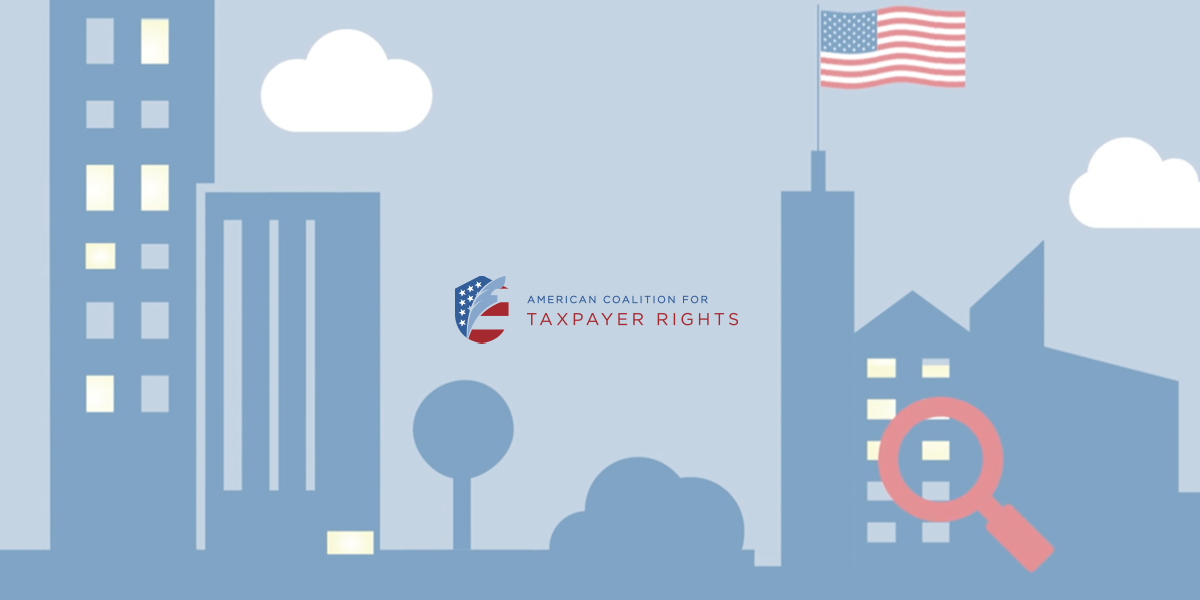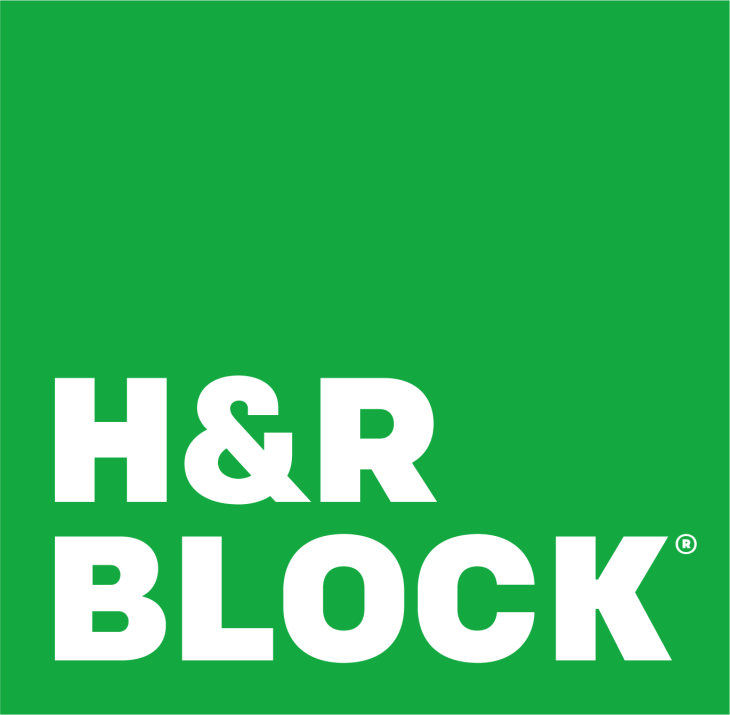Delivered Via Email
September 12, 2023
The Honorable Elizabeth Warren
U.S. Senate
309 Hart Senate Office Building
Washington, DC 20510
The Honorable Katie Porter
U.S. House of Representatives
1233 Longworth House Office Building
Washington, DC 20515
Dear Senator Warren and Congresswoman Porter:
I am writing today on behalf of the American Coalition for Taxpayer Rights (ACTR) in response to your letter of July 23 in which you cast private-sector tax preparers in a very negative light. We respectfully, and strongly, disagree with the characterizations and assertions contained in your letter, and believe the facts included below reflect the reality of tax preparation in America today and demonstrate that a government-created Direct File tool is unnecessary, expensive and a distraction from more pressing priorities at the Internal Revenue Service.
Over the past two decades, our nation’s tax preparation professionals – including ACTR members – have worked closely and collaboratively with the IRS to move the vast majority of individual tax filers to electronic filing. In fact, as of May 2023, approximately 94 percent of individual returns for Tax Year 2022 were e-filed, and about 62 percent of those were self prepared, according to the IRS. That is not a record of “failure.” That is clear indicia of success, and one welcomed at the IRS.
In addition, we work closely with millions of American taxpayers each year in navigating the complex tax laws enacted by the Congress and help those taxpayers in claiming the credits and tax benefits to which they are entitled under law. Since 2015, we also have worked closely and collaboratively with the IRS and state departments of revenue in the highly successful IRS
Security Summit to combat and greatly reduce the crime of identity theft tax refund fraud. At the outset of the COVID-19 pandemic, we worked very closely with IRS and private-sector financial institutions to help deliver critical economic impact payments to millions of Americans. And, for each of the last five years, our group, ACTR, has underwritten cybersecurity training for thousands of tax professionals at the IRS Nationwide Tax Forums.
To be clear, we are a vital and reliable partner in the tax administration ecosystem, and we oppose the partisan effort to have the IRS become the nation’s tax preparer (which would be in addition to its current role as tax auditor, tax collector and tax enforcer) through a federal government-created Direct File tool. Direct File will not be simple and easy, as its proponents proclaim. It will not be free. And it is not necessary, in light of the many tax-preparation options that are available today and the many other pressing priorities at the IRS.
We consider many of your points regarding IRS Direct File below.
Claim: The new IRS Direct File tax preparation tool – which the IRS is expected to offer to a small subset of taxpayers in January 2024 – will be simple and easy to use.
The Facts: This claim is false. In reality, the government-created IRS Direct File tool likely will be greatly inferior to the private-sector tax software that has been perfected over several decades and which hundreds of millions of American taxpayers have successfully used to prepare and file their federal and state tax returns. Far from being easier to use, IRS Direct File actually could be more difficult for taxpayers to navigate because, at this time, there is no indication that taxpayers will be able to prepare and file a state income tax return simultaneously with a federal return (as is the case today with literally all private-sector tax preparation software). Thus, taxpayers who use IRS Direct File will very likely have to re-enter their tax data to populate a state tax return (which raises a series of procedural issues due to state requirements). The key takeaway is that IRS Direct File will be more complex, more time consuming, and more susceptible to errors due to re entry of data in a state return.
Furthermore, there is no clarity on the suite of services that may be available through IRS Direct File. For example, will taxpayers who file Form 1099 (as many “gig” workers do) be able to use IRS Direct File? Will those who itemize deductions be able to use Direct File? A lack of clarity over who may or may not be able to use Direct File will result in taxpayer confusion, and lead to incomplete or incorrect tax returns that could shortchange taxpayers on their refunds or open them up to an increased risk of audit.
It is especially troubling that the proponents of IRS Direct File appear to be over-selling the nascent program’s untested capabilities for the upcoming tax-filing season, or alternatively they may be unaware of the profound, serious shortcomings of the Direct File tool. Direct File apparently will be available only to a very small subset of taxpayers in 2024. We understand, for example, that Direct File likely will be by “invitation only” in early 2024.
Finally, even if IRS Direct File had the same capabilities and ease of use as the well developed and popular private-sector tax preparation software that is available today, taxpayers who choose IRS Direct File would still have to go through the process of entering their critical tax-related data in the IRS tax-preparation tool. That is, there would be no time savings for those who are eligible for IRS Direct File. The same critical data points (e.g., gross income, marital status, number of dependents) would be necessary to populate, prepare and file a federal tax return.
The complexity of creating, maintaining, updating and providing customer support for a Direct File tool that is available (or aspires to be available) to millions of taxpayers should not be underestimated.
Claim: IRS Direct File will be free.
The Facts: This claim is false and not credible. The American taxpayer will bear the costs of IRS Direct File, which likely will be much more significant than its proponents acknowledge. Even the May 2023 report prepared by the think tank New America for the Department of the Treasury and IRS concluded that the cost of an IRS Direct File tool could be $250 million annually – or $2.5 billion over 10 years. Moreover, most knowledgeable observers believe this cost estimate is grossly understated. For example, former Acting IRS Commissioner David Kautter, in an interview with Tax Notes, stated:
“I think the greatest understatement in the entire [New America] report is the statement about considerable uncertainty around development costs. Costs are substantially understated.”
Further, an analysis by Govini, a federal government contracting consultant, concluded that the cost of building, maintaining and updating the federal Affordable Care Act website was $24 billion over 10 years. One major difference, Govini said, is that the ACA website must accommodate 10 million to 15 million users seeking health insurance coverage each year, which is only 7-10 percent of the 155 million federal individual tax filers who file their taxes with the IRS each year. The complexity of tax preparation and filing is far greater than that associated with applying for health insurance. And, the sheer number of taxpayers filing returns with the IRS each year is vastly greater than those using the ACA website. One thing is certain: IRS Direct File will not be free. Its costs will be borne by American taxpayers. And those costs likely will be significant.
Claim: IRS Direct File is necessary, and taxpayers want it.
The Facts: This claim is false. Private-sector tax preparation companies offer American taxpayers a wide range of reasonably priced tax-preparation and tax-filing options today. In fact, they fiercely compete against one another to provide a superior taxpayer experience and to maximize the credits and deductions for which the taxpayer is eligible under law. In addition, 70 percent of all taxpayers (i.e., those with an adjusted gross income (AGI) of less than $79,000 for tax year 2023) will be eligible for a free federal income tax return through the IRS Free File Program. IRS Direct File is unnecessary.
The proponents of Direct File are driven by an ideological belief that the federal government knows best, and they argue, among other things, that taxpayers should not have to pay anyone to prepare their taxes. But no one is forced to pay anyone to prepare and file their federal income taxes. Taxpayers are free to prepare their returns themselves (and some do). However, millions of taxpayers choose from a variety of private-sector tax preparation and filing options every year because the tax laws – enacted by the United States Congress – are often difficult to understand and comply with, and because taxpayers want to ensure that they are claiming all the deductions and credits for which they are eligible. As a revenue collection agency, the IRS has no incentive to use a Direct File platform to direct taxpayers to such credits and deductions.
The proponents of IRS Direct File also point to a flawed survey that was designed to achieve a predetermined result as a rationale for a government-created tax preparation tool. For example, they asked taxpayers: “Would you like free tax preparation?” Not surprisingly, when a respondent is asked if they would like something of value for free, they often indicate “yes,” provoking skewed survey results. In sharp contrast, a survey conducted by SocialSphere, Inc. (which is run by Harvard University social scientist John Della Volpe, one of the Biden Administration’s pollsters) found that an IRS-created Direct File system is not a priority for taxpayers. Instead, taxpayers said they want 1) better customer service from IRS (e.g., they want their phone calls answered), and 2) the most affluent and corporations to pay their fair share in income taxes.
Claim: The IRS Free File Program is a failure.
The Facts: This often-repeated claim is simply contrary to the facts. Over the past two decades, the IRS Free File Program has provided more than 70 million free federal income tax returns (as well as millions of free state income tax returns). Critics of the IRS Free File Program often point to what they say is the Program’s low “take-up” rate. But this claim is misleading. While the lowest 70 percent of U.S. taxpayers are eligible to participate in the Program, a MITRE study conducted for the IRS in 2019 concluded that the actual pool of Free File candidates for 2017 was only about 30 million. MITRE said that there are a variety of reasons why more taxpayers do not use IRS Free File, but one common reason is a lack of awareness.
Stated more succinctly, could the take-up rate for IRS Free File be higher? Yes. But the IRS simply has no budget to promote and market the Program, and, consequently, not enough taxpayers know about it. Those taxpayers who do use IRS Free File report high satisfaction rates.
The Electronic Tax Administration Advisory Committee (ETAAC)-which is an IRS Advisory Board – recommended in June 2023 that the IRS work with the Free File Alliance and other software industry associations to continue enhancing the Free File Program. Additionally, IRS executives repeatedly have expressed their commitment to maintaining and strengthening the IRS Free File Program, and noted its value to taxpayers.
Rather than expending taxpayer dollars to build a Direct File tool that is likely to be inferior to the existing options that are available, the IRS should use those resources to develop a marketing plan for the existing Free File Program that will help Free File fulfill its potential and serve more eligible taxpayers.
Two final points regarding the IRS Free File Program and private-sector tax preparers also should be made. First, Free File costs the federal government virtually nothing (other than the costs associated with the three full-time equivalent IRS employees who work on the Program). Free File and the Volunteer Income Tax Assistance Program (VITA) each provide approximately the same number of free federal tax returns each year. Both programs are successful, and both should be supported. The IRS needs funding to promote and market the IRS Free File Program.
Finally, it must be noted that private-sector tax preparation companies gave away (for free) an estimated 27 million federal income tax returns in the last tax-filing season, in addition to the estimated 3 million free federal returns provided through the IRS Free File Program. The evidence clearly demonstrates that millions of Americans utilize a variety of free tax-preparation and tax-filing options each year, further undercutting the necessity of building, maintaining and updating a government-run IRS Direct File tool.
Claim: The Treasury Department and IRS have clear statutory authority to engage in tax preparation.
The Facts: This is contrary to the facts. To date, neither the Treasury Department nor the IRS has articulated the statutory authority that would permit the IRS to engage in tax preparation (which is what IRS Direct File is). In fact, nowhere in the New America report or the accompanying IRS report in May 2023 is the statutory authority for such a government-run tax-preparation tool cited. Furthermore, IRS Commissioner Daniel Werfel was specifically asked this question by U.S. Senator Mike Crapo (R-ID), the Ranking Republican on the Senate Finance Committee, at a hearing on April 19:
Senator Crapo: “Has the IRS made the determination that it is going to pursue this [a Direct File program], and if so, where does the IRS find its statutory authorization to do so or the funding allocated and appropriated to do this?”
Commissioner Werfel: “Senator, no, no decision has been made on moving forward with a direct-file solution and in large measure because of the point you raised.”
The IRS unquestionably is the federal government’s tax collector, tax auditor and tax enforcement agency. To date, the IRS has published no claim of its statutory authority to engage in the Direct File-type of “tax preparation” (as distinguished from its recognized authority to design and require the use of certain tax forms). For very good reason, there is no basis in law for permitting IRS to serve as the nation’s tax preparer. Allowing the IRS to serve as tax preparer and at the same time as tax collector creates an inherent conflict of interest that would be a disservice to American taxpayers.
* * * * *
Like all trade associations, ACTR and its members are acutely aware of our obligations under the nation’s antitrust laws. Accordingly, we do not know and would never seek data or information regarding our members’ revenues. Also, like thousands of other stakeholders, ACTR exercises its First Amendment right to petition the federal government, and, accordingly, abides by the law in detailing its lobbying expenditures and activities in publicly available forms filed with the House and Senate.
ACTR does not have “employees.” Nor does the Coalition have a political action committee.
* * * * *
We hope the information and responses provided in this letter give you a clearer picture of our position on a government-created IRS Direct File tax-preparation tool. We believe that an inferior Direct File tool is unnecessary, the new system’s costs will be significant and borne by the American taxpayer, and the project will distract the IRS from more pressing priorities.
Thank you in advance for your consideration.
Sincerely,
Stephen M. Ryan, General Counsel
American Coalition for Taxpayer Rights
cc:
The Honorable Ron Wyden, Chairman, Committee on Finance,
The Honorable Mike Crapo, Ranking Member, Committee on Finance
The Honorable Jason Smith, Chairman, Committee on Ways and Means
The Honorable Richard Neal, Ranking Member, Committee on Ways and Means




